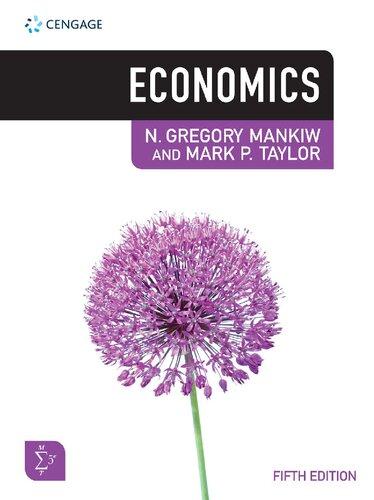The recession following the Financial Crisis of 20079 hit most developed countries. As economies began to gradually
Question:
The recession following the Financial Crisis of 2007–9 hit most developed countries. As economies began to gradually experience growth again, it was largely expected that unemployment, which had been high in many European countries in particular, would fall back to ‘natural’ rates. Unemployment has indeed fallen in most European countries, even those most severely affected by the Financial Crisis: Greece, Spain, Ireland, Portugal and Italy. In some countries, unemployment remains high, but in others, rates of unemployment are at historic lows. In some cases, unemployment has fallen below what had been estimated as the ‘natural rate of unemployment’. In other cases, employment rates in many countries have continued to rise. What has not happened (at least at the time of writing)
is that inflation has begun to accelerate. In some countries, growth is sluggish and real wages have either remained constant or fallen, and so questions are being asked of the relevance of the concept of the ‘natural rate of unemployment’.
In 2018, a widely respected macroeconomist, Olivier Blanchard, had a paper published in the American Economic Review entitled ‘Should We Reject the Natural Rate Hypothesis?’ In the paper, Blanchard notes that the relationship between inflation and unemployment in many major economies since the Financial Crisis might suggest the NRU should be abandoned. However, he concludes: ‘Central banks should keep the natural rate hypothesis … as their baseline, but keep an open mind and put some weight on alternatives.’
Other commentators have noted that the demographics of the labour market in many developed economies have changed, and these could partly explain why the NRU might be lower than in the past and could go even lower. The labour force in many countries is becoming older, and the number of young people entering the labour force is slowing. In general, unemployment is lower among the older generation, and this could contribute to a lower NRU. In addition, it is noted that in a number of countries, participation in higher education has grown, and a more educated workforce would generally be associated with lower unemployment.
Critical Thinking Questions
1 Is a concept of the ‘natural rate of unemployment’ of any value to policymakers given the difficulties in quantifying it?
2 As countries across Europe moved out of recession, it was expected that unemployment would fall back to the natural rate, and that policy would have to be manipulated to prevent inflation accelerating if unemployment fell below the natural rate. Critically examine this statement from a heterodox perspective.
3 ‘Blanchard’s conclusion that central banks should keep the NRU as its baseline reflects the mainstream’s tendency to cling onto theories which have been shown to be redundant.’ Comment on this view.
4 Why might rising employment and falling unemployment rates not necessarily lead to increases in real wage rates (Marx’s idea of the reserve army of the unemployed might have some relevance here)?
5 To what extent can changes in demographics help explain a lower natural rate of hypothesis?
Step by Step Answer:






